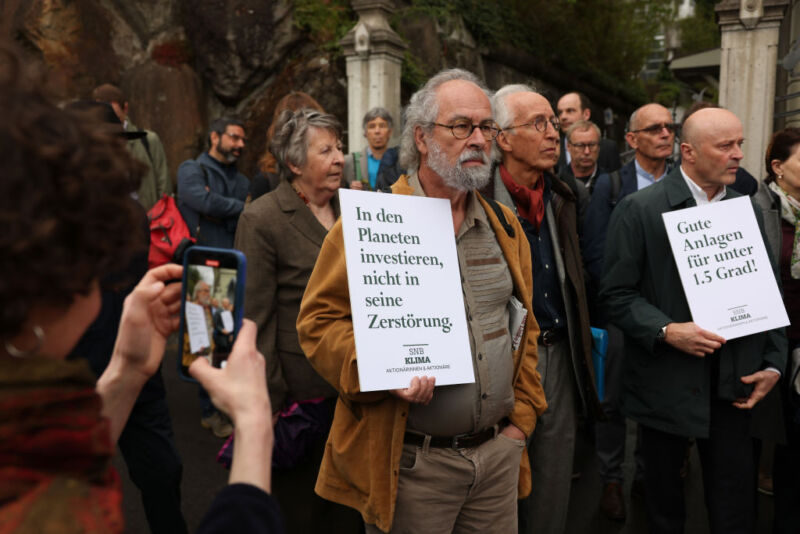The challenges and promises of climate lawsuits

Enlarge / Shareholders of the Swiss National Bank (SNB), join a demonstration against the central bank's investments in the East African Crude Oil Pipeline (EACOP), ahead of the annual general meeting in Bern, Switzerland, on Friday, April 28, 2023. (credit: Bloomberg via Getty Images)
Even the temperate, mountainous country of Switzerland isn't immune to climate change. Sizzling heat waves are melting alpine glaciers, killing trees and fish and, in the cities, likely causing an uptick in human deaths.
Rosmarie Wydler-Walti, who lives in Basel, is acutely aware of this. A woman in her 70s, she belongs to the demographic most vulnerable to heat-related death. To her, the government's response to recent heat waves-cautioning seniors to stay in the shade during hot days, for instance - seemed like a Band-Aid. She wanted to see people tackling the problem's root cause: countries like Switzerland not doing enough to curb emissions of planet-warming greenhouse gases.
With support from Greenpeace Switzerland, Wydler-Walti and other members of a group of senior women climate activists filed a lawsuit against the Swiss government in 2016, demanding that the state curb emissions more quickly. They argued that the government, by not sticking to policies consistent with the worldwide goal of limiting warming to less than 2 degrees Celsius above pre-industrial temperatures, was threatening senior women's fundamental human right to life. Indeed, many of the women involved ultimately reported having experienced heart palpitations, vomiting, swollen arms and legs and breathlessness during recent heat waves, and some reported having fainted.